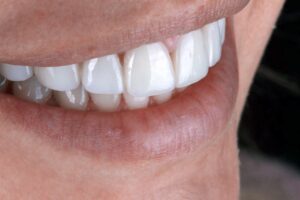
Wisdom teeth extraction offered by the Fresno family dentist is a common dental surgical procedure performed to remove impacted or problematic third molars. The decision to extract wisdom teeth depends on various factors, including the tooth’s position, size, and potential impact on surrounding teeth and tissues. Understanding the indications and contraindications for wisdom teeth extraction is crucial to ensure optimal outcomes. The procedure, typically performed by an oral surgeon or dentist, involves surgical removal of the tooth, followed by a recovery period.
This article provides an overview of the indications, contraindications, procedures, and recovery after wisdom teeth extraction, highlighting the essential information patients need to know before undergoing this common dental surgery.
Indications for Wisdom Teeth Extraction
Wisdom teeth extraction is indicated in the following situations:
- Impaction: When wisdom teeth do not have enough space to erupt properly, they can become impacted, leading to pain, infection, or damage to surrounding teeth.
- Overcrowding: Wisdom teeth can push against adjacent teeth, causing overcrowding and orthodontic issues.
- Infection: Wisdom teeth are prone to bacterial growth, leading to infection and abscesses.
- Cysts and tumors: Impacted wisdom teeth can form cysts or tumors around them, which can lead to damage to surrounding bone and tissue.
- Tooth damage: Wisdom teeth can rub against adjacent teeth, causing wear and tear.
- Gum disease: Wisdom teeth are difficult to clean, making them prone to gum disease.
- Proactive removal: Some dentists recommend removing wisdom teeth before they cause problems.
Contraindications for wisdom teeth extraction
Wisdom teeth extraction is contraindicated in the following situations:
- Severe medical conditions: Patients with severe medical conditions, such as bleeding disorders or heart conditions, may not be suitable candidates.
- Pregnancy: Wisdom teeth extraction is generally avoided during pregnancy due to potential risks.
- Infectious diseases: Patients with infectious diseases, such as HIV or hepatitis, may require special precautions.
- Nerve damage: Patients with pre-existing nerve damage may be at risk for further complications.
- Dental work in progress: Patients undergoing other dental procedures may need to postpone wisdom teeth extraction.
Procedure for Wisdom Teeth Extraction
Wisdom teeth extraction is performed in the following way:
Pre-Operative Steps
- Diagnosis: Confirm the need for wisdom teeth extraction through radiographic and clinical examination.
- Patient consultation: Discuss treatment options, risks, and benefits.
- Anesthesia planning: Determine anesthesia requirements.
- Preoperative imaging: Take radiographs or CBCT scans to visualize tooth anatomy.
Surgical Procedure
Step 1: Anesthesia and Isolation (10-15 minutes)
- Administer local anesthesia or sedation.
- Isolate the tooth with a rubber dam.
Step 2: Incision and Access (10-30 minutes)
- Make a surgical incision to access the impacted tooth.
- Reflect a mucoperiosteal flap to expose the tooth.
Step 3: Bone Removal and Tooth Sectioning (30-60 minutes)
- Remove the bone covering the impacted tooth.
- Section the tooth to facilitate removal.
Step 4: Tooth Removal (30-60 minutes)
- Carefully remove the tooth.
- Inspect the site for any remaining tooth fragments.
Step 5: Wound Closure (10-30 minutes)
- Close the incision with sutures.
- Apply gauze to control bleeding.
Recovery after wisdom teeth extraction
Recovery typically takes 7-10 days. Post-operative instructions include:
- Rest: Rest for 24 hours.
- Pain management: Follow pain medication instructions.
- Bleeding control: Apply gauze to control bleeding.
- Swelling reduction: Apply ice packs.
- Soft food diet: Eat soft foods for 2-3 days.
- Oral hygiene: Avoid brushing the extraction site.
- Follow-up appointments: Schedule follow-up appointments.
Final note
Wisdom teeth extraction is a common and effective procedure for alleviating discomfort, preventing complications, and maintaining optimal oral health. While the decision to extract wisdom teeth depends on individual circumstances, understanding the indications, contraindications, procedure, and recovery can empower patients to make informed decisions.
As with any surgical procedure, it’s essential to consult with a qualified oral surgeon or dentist to determine the best course of treatment. With proper care and attention, wisdom teeth extraction can be a successful and beneficial procedure for achieving long-term oral well-being.





